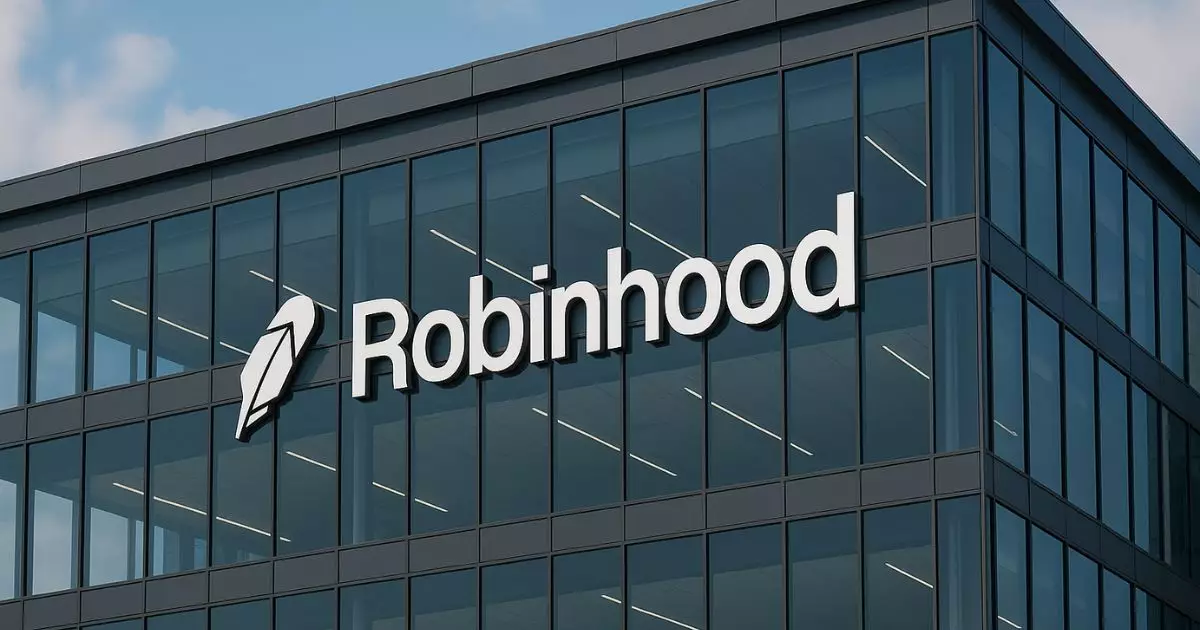In a groundbreaking move that could potentially reshape the very foundations of our financial landscape, Robinhood has put forth a comprehensive proposal to the U.S. Securities and Exchange Commission (SEC) advocating for a federal framework to regulate tokenized real-world assets (RWAs). This initiative emerges from the realization that a staggering $30 trillion market is ripe for disruption and modernization through blockchain technology. Robinhood’s 42-page proposal aims not just at creating a new regulatory environment, but at crafting an entirely new paradigm for how assets are perceived and traded.
Financial systems today are fragmented; they are like scattered pieces of a puzzle that fail to form a complete picture. Robinhood has pointed out that the current state of RWA tokenization is highly compartmentalized, locked within isolated pilots and regulatory sandboxes. This situation is far from ideal, and it signifies a pressing need for a cohesive national framework that accommodates innovation while ensuring compliance with existing securities laws. The call for a unified system is not merely a convenience—it is an absolute necessity for pushing the financial sector into the 21st century.
The Proposal: More than Just Tokenization
The company detracts from the notion that tokenized assets might simply be seen as derivatives or mere synthetic instruments, emphasizing that these tokens represent direct claims to underlying financial products like stocks, bonds, and real estate. The proposed framework could help eliminate unnecessary legal ambiguities surrounding ownership and, importantly, reduce settlement times—sometimes from days to mere seconds. Imagine the liberation for investors who would no longer be constrained by traditional processes that tend to lag behind the speed of technological advancement.
Central to this ambitious proposal is Robinhood’s vision for developing a new platform called the Real World Asset Exchange (RRE). This marketplace takes an innovative approach by incorporating off-chain trade matching paired with on-chain settlement functionalities. Blockchain technology’s undeniable strength lies in its transparency, which is a compelling attribute that can allure both new and institutional investors. However, the proposal recognizes that compliance remains paramount. By integrating know-your-customer (KYC) and anti-money-laundering (AML) tools provided by reputable third-party vendors, Robinhood is appealing directly to regulatory authorities, striving to create an environment of trust.
The Institutional Roadblock: Overcoming Skepticism
However, the success of this initiative hinges not only on regulatory approval but also on dismantling the skepticism that permeates the financial industry, particularly from institutional players. Traditional financial institutions often hesitate to embrace technologies that they perceive as disruptive, fearing an erosion of their established roles. Robinhood’s proposal challenges this mindset by offering a well-structured pathway to integrate blockchain into the existing compliance framework, eliminating the apprehensions that come with novelty.
The reluctance to fully embrace tokenized RWAs reflects a broader resistance to change within the financial ecosystem. Educating institutional investors on the legitimacy and the transformative potential of tokenized assets is crucial. If this proposal gains traction and instills confidence among institutional players, it could catalyze a broader acceptance that may lead to substantial shifts in investment strategies and asset management.
Robinhood’s Role in the Financial Renaissance
As Robinhood continues to wield its influence in the retail investment sector, its ambitious filing places it in a unique position—not just as a trading platform, but as a pioneer in regulatory innovation. The move to bridge traditional finance with tokenized ecosystems could also signify a shift in how we perceive the role of technology in finance. It invites us to ponder whether we’re ready to welcome a future where decentralized finance harmoniously coexists with legacy systems, creating a landscape marked by transparency and efficiency.
Robinhood, by proposing legal interoperability and advocating for recognition of tokenized RWAs as legitimate financial instruments, is sending a signal that aligns with the center-right liberal ethos of embracing innovation while respecting the tenets of responsible governance. The outcomes of this brave initiative could set a precedent that legitimizes tokenization at a national level, ushering in a new era of financial freedom.















